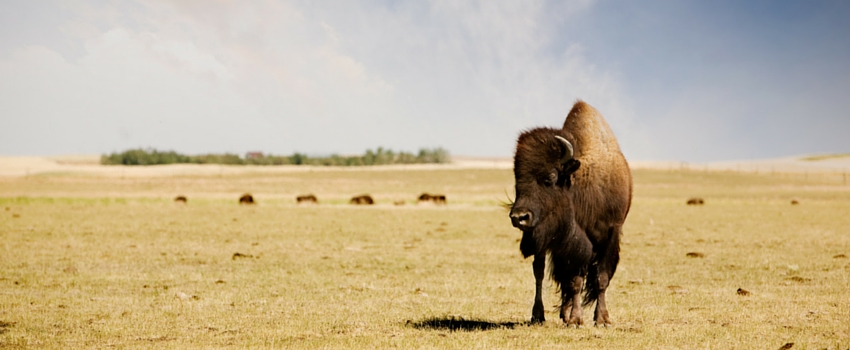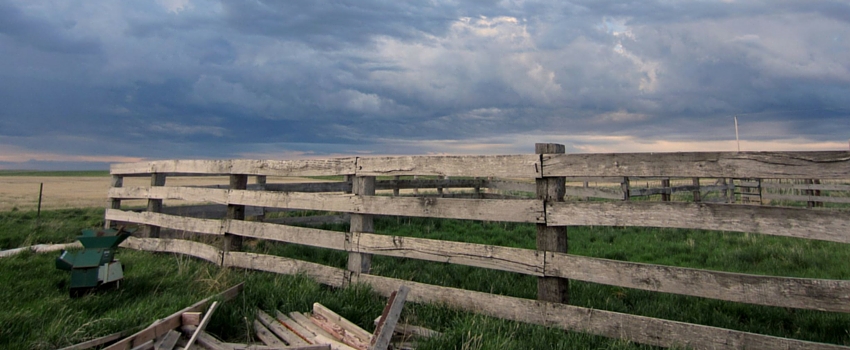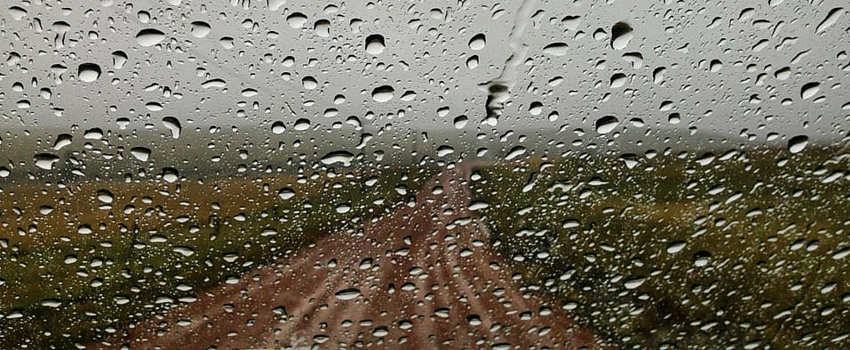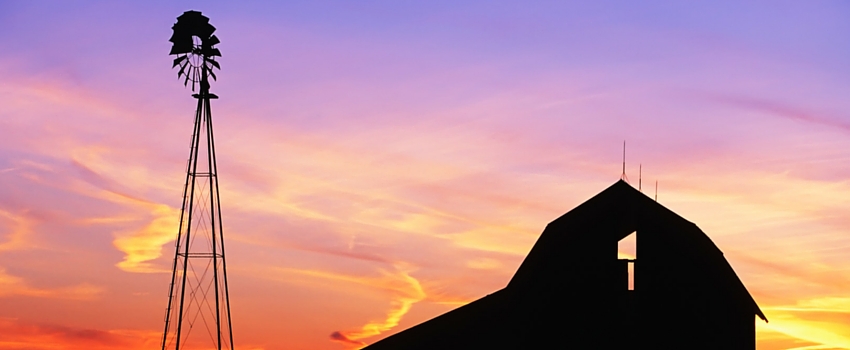Farmers and ranchers lives matter to me because I’ve seen first-hand what happens when a corrupt Federal bureaucrat targets one – specifically, my dad.
Ranchers in Oregon, Nevada, and elsewhere have been making national headlines the past couple years due to some very tense conflicts with the BLM (Bureau of Land Management) and NPS (National Park Service) and EPA (Environmental Protection Agency), with agitated militia groups seeing governmental tyranny in the heavy-handed treatment of honest, hard-working families in the American West.
Just this week 69 year-old rancher Cliven Bundy was arrested by the FBI in Portland, Oregon on charges related to the 2014 standoff at his ranch. His arrest by Federal agents in SWAT gear as he disembarked the plane at Portland’s airport was conveniently timed with his arrival in Oregon to support protests over the Hammond ranching family’s high-profile legal dispute there, another case of ranchers and farmers at odds with the Federal government. Two of Cliven’s sons – Ammon and Ryan – have also been arrested as a result of their involvement in the armed occupation of a ranger station in Malheur National Wildlife Refuge, and another rancher – Leroy Finicum – was shot and killed by law enforcement.
The mainstream media coverage of these stories has struck me as almost universally biased in favor of the government, more likely to take its side and dismiss the farmers and ranchers as backwoods, hair-trigger cowboys stirring up trouble and deserving a heavy-handed response. And maybe that’s what they are. But the majority of Americans – particularly those in the media who are covering these stories – don’t have a personal frame of reference for what farming and ranching entails, so their adopting an unsympathetic view is not surprising. They have a difficult time relating to their fellow citizens in rural areas, or appreciating what’s involved or at stake in these situations, and that concerns me.
While I can’t tell you definitively and in detail who is in the right in each of these cases, I’d like to tell you my family’s story. Maybe it’ll help shed some light on the bigger picture and why these farmers and ranchers lives matter.
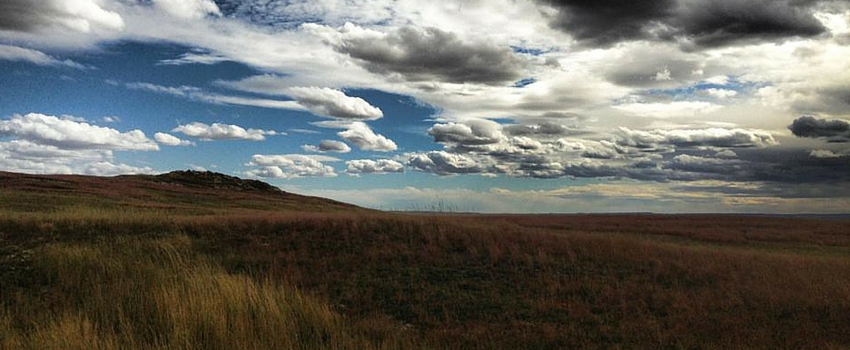
Why Farmers and Ranchers Lives Matter To Me
1995 DAWSON COUNTY, MONTANA – it’s a warm summer day. The noonday sun is shining bright overhead in a big blue sky. A moderate breeze rustles the grass of the rolling prairies and fields. Unless a bird chirps or an insect calls for its mate, rustling grass and wind are the only sounds that can be heard for miles around.
It’s over twenty years ago, and a much younger 8 year-old me looks around at our family farm, scanning the rolling terrain for wild deer, antelope, pheasant, coyotes, and rabbits, squinting and holding my hand over my eyes to shield them from the glare of the bright sun.
As my little brother Bryce and I walk along the creek that runs through dad’s farm, we carry Mickey Mouse and Donald Duck fishing poles in our hands. Scores of grasshoppers as long as our fingers jump up in front of us, some landing in the water of the creek where they float on the surface only briefly before being gobbled up by hungry fish.
My brother and I enjoy fishing in that creek, yet we still haven’t overcome our squeamishness about baiting our own hooks with the squirmy insects fleeing before us. While dad drives or works on the tractor or combine or truck and sees to operating his organic farm on days like today, mom brings us boys out to eat a lunch of sandwiches with him. She helps us catch grasshoppers and bait our hooks with them, then Bryce and I enjoy hour after hour of casting our lines in the water, catching one fish after another on days like this.
To the south of the dirt road that cuts through dad’s farm, this younger me will glance over often at what looks to my little boy eyes like a foreboding mountain of volcanic rocks. Years later I will return as a man and realize it wasn’t a mountain after all, only a tall hill rising above the fields and prairie. But as a young boy I daydream often about what I’ll find at the top when I finally climb that mountain someday – fossilized dinosaur bones, Indian artifacts, an old cowboy gun, rattlesnakes. I haven’t worked up the courage to climb it and find out yet, but I’m sure I will someday.
My family lives in Glendive at this time, a town several miles to the south of that land my father owns and leases and works. Nine-year-old me loves reading books from the library, playing in the park the block over, riding my bicycle, and building things with LEGO.
Young me doesn’t know much about how a farm is run, only that dad works hard to do it right and provide for his family thereby. When the equipment breaks, dad rolls up his sleeves and pulls out his tools and fixes it. When the house needs work, dad makes the repairs or renovations himself. We don’t live an extravagant life, but it’s an honest and hard-working one with many simple pleasures.
When a simple life became very complicated.
Just as vividly as I remember the younger me fishing in that creek with my brother, or hiking through the prairie kicking up grasshoppers as we went, or eating sandwiches on a blanket in the shade of our grain bins while dad took a break from his work, I remember sitting with my brother in the car out front of the USDA office in Glendive when life became much more complicated.
The local sheriffs had been called to block my parents’ way into the building and uniformed officers confronted my parents at the door to the USDA building. Dad and mom were bringing in paperwork to show they were in good standing with the rules and regulations of the government programs they had signed up for, proof our farm was being managed properly. But someone in the office had called the sheriffs because my parents “kept coming in.”
Not really understanding what was happening – I couldn’t at that age – I nevertheless knew the tension was thick as mom and dad tried to explain to the officers the legitimacy of their purpose for being there. But the sheriffs weren’t having it. They just shook their heads and told mom and dad they weren’t going to be allowed into the building, pointing back at our car and telling my parents to go home.
Meanwhile my brother and I looked on, unsure whether our mother and father were going to be arrested if they continued pressing. And they did press. My mother jostled around the two officers blocking the way and marched in through the door, with the officers and my dad trailing behind.
In the years that followed I would learn my dad had only been trying to peacefully defend his farm management against allegations from a bully of a USDA bureaucrat named Steve Deckert. Confident the farm was in fact being managed properly within the limitations and stipulations of the programs enrolled in, my parents had asked Mike Carlson, a more sympathetic official in the Soil Conservation department on the opposite side of the USDA building from Deckert, to review their files.
You might be wondering what all the fuss was about. Why make a big deal about farm management being questioned? The answer is that the handwriting was on the wall for what was in store if Deckert was allowed to have the only say in the matter without the balance of a second opinion being taken into account.
Steve Deckert was known for having threatened to take farms away from those he chose as targets for his intimidation, which included most of Dawson County’s farmers. Now he had set his eyes on my dad’s farm and he wasn’t interested in giving it a fair shake.
Nor did Deckert want anyone else to interfere with his bullying. When he went as far as physically standing in front of the filing cabinet containing my parents’ files in order to keep Mike Carlson from reviewing them, my dad wrote a formal letter of complaint which prompted an OIG (Office of Inspector General) investigation of Glendive’s USDA office.
There were clearly sore feelings once the OIG investigation was underway, and the call to the sheriffs from the Glendive office seemed to be a vindictive act designed to humiliate and intimidate my parents. This was punishment for dad having made trouble for the bureaucrats. Thankfully my parents weren’t arrested that day, but uneasy speculation in our house followed that confrontation. What would have happened to Bryce and I had our parents both been taken into police custody that afternoon?
Anxieties of that sort only increased when a week after the incident with the sheriffs at the USDA office our family was tailed closely by a patrol car for over half an hour as we left Glendive for our farm in the country. Turn after turn it tailed us before eventually passing and speeding off into the distance. I remember my parents being clearly shaken by that experience. Witnessing my mom and dad’s unease gave me no great comfort either.
And that’s when we stopped farming.
That’s why we moved to Ohio when I was ten. A corrupt local USDA official had put my dad’s farm in his sights and was trying to cripple it, and he didn’t take too kindly to my parents putting up a fight. You might say I grew up watching what happens when an individual farmer goes up against the Federal government.
Brian Schweitzer – who would go on to serve as the 23rd governor of Montana from 2005-2013, and who once offered my dad a job managing one of his farms – would comment to my dad of having been in similar situations with Federal bureaucrats concerning his own farming operations. Schweitzer would lament that it was virtually impossible to get Federal bureaucrats like Steve Deckert fired or disciplined when they misbehaved. And what was worse, bureaucrats like Steve knew they were nigh untouchable, and derived from that knowledge a greater sense of entitlement to go on abusing and bullying if they were so inclined already.
But Deckert’s office going so far as to use local sheriffs to intimidate my parents’ and obstruct their efforts to clear their name did two things:
First, it caused my parents to feel unsafe continuing to live and work in the Glendive area, especially if they were going to continue resisting the corrupt campaign against them.
How much in his back pocket did Deckert have the local sheriffs? It was impossible to tell. But if he was willing to go as far as he already had, what else might he do to intimidate them if they continued pressing? There’s a lot of wide-open space in Eastern Montana, and ‘accidents’ can and do happen in farming. Not to be paranoid, but you just never can tell with some people.
Second, calling the cops frivolously because my parents were “coming in too often” eventually paved the way to Deckert’s undoing.
The OIG investigation of the Glendive USDA office concluded Deckert had indeed abused his power and behaved inappropriately. Though bureaucrats are notoriously impossible to have disciplined or fired, the OIG investigation prompted by my dad’s complaint ended up costing Deckert his job as the evidence mounted that he had shown a pattern of bullying and unscrupulous behavior toward many farmers and ranchers in the area. Steve Deckert rather than my parents ended up being the one escorted from the USDA office.
Standing up came at a cost.
There was a real and lasting price for my family that came with resisting Steve Deckert. Opposing the Federal government and feeling intimidated by one of its appendages put a great strain on my parents’ marriage, both before and after we moved to Ohio. By the time I was in junior high, my parents were divorced.
It didn’t help matters that when we moved to Ohio we had nothing and nowhere to live. As a matter of fact, we lived out of a tent in John Bryan State Park for a few weeks during the summer before getting settled.
In order to purchase another home and start over in Ohio, my dad auctioned off his farm and equipment. So died the dream of his living out his days doing the only thing he’d ever really wanted to – farming.
After short stints in construction and selling parts for a John Deere dealership, my dad settled on a job driving truck. He continues driving truck to this day. Working long hours to make ends meet for our family, my dad didn’t really have the time or energy to continue fighting. The damage had already been done and it was time to start over and move on.
But Mom kept on from home and eventually won a discrimination settlement out of court. The Federal government gave her over eighty thousand dollars to never talk about the situation again. The deal they offered her included some sweet concessions to make up for the damage done to our farming operation – giving the farm back to us, loan forgiveness, stuff like that – but by the time the government offered these things mom was so bitter and angry, and my parents’ marriage had already dissolved, and the farm had already been sold to pay for a restart in Ohio. Rather than leave an open door for my dad to return to Eastern Montana, she dismissed the portions of the deal that might have made a return to farming possible.
The deal the government offered was just too little too late, and it only came to my mom because she continued fighting longer than she really had the emotional strength to.
Only God can tell what would have happened if Deckert hadn’t misbehaved toward my parents. Perhaps my mom and dad’s marriage would have fallen apart anyway. Maybe my dad would have had a bad year of drought or hail or any of the other innumerable things that can befall a farmer, and maybe he would’ve eventually gotten out of farming anyway. But you see, that’s really not the point.
The point is that a corrupt government official made it much harder for my parents to maintain either the farm or their marriage. He held a finger on the scales to tip them in favor of destroying us, and it’s impossible to tell what might have happened had he not. The damage that resulted from Deckert’s dishonest shenanigans was real, tragic, and personal.
Afternoons of my brother and I fishing in the creek and eating sandwiches with dad in the shade of our grain bins were replaced with years of brokenness and uncertainty over 1,000 miles away, along with a stark picture of how corrupt and cruel man can behave toward his fellow man, especially when he is given great power and does not expect to be held accountable.
Whether You Realize It Or Not, Farmers and Ranchers Lives Matter
Why did I just tell you that incredibly intimate and painful story from my childhood? It wasn’t so you’d feel sorry for me or other ranching and farming families. It wasn’t just to make you angry at the Federal government or its innumerable bureaucrats, any number of which can and will be corrupt and tyrannical like Steve Deckert at any given time.
No, I tell you that story so you can maybe begin to understand and sympathize with the plight of farmers and ranchers in the West, even ones like the Bundy family in Nevada and the Hammond family in Oregon. After all, besides the farmers and ranchers themselves, who in America really cares what happens to farmers and ranchers these days?
If your family left off living on and working farms generations ago in favor of inhabiting towns and cities, you likely have little to no frame of reference for what ranching and farming families today live like.
But you need to!
Ignorance is no excuse for apathy, especially when these families are made up of real husbands and wives and fathers and mothers, with real sons and daughters and brothers and sisters who are affected by the increased strain a struggling economy and overbearing government puts them under.
If you live on either the East or West coast, far removed from ranches and farms, you probably aren’t aware of the incredible pressure and constantly shifting rules and regulations American ranches and farms and, by extension the families that depend on and enjoy them for their livelihood and way of life, are subjected to by the United States Federal government.
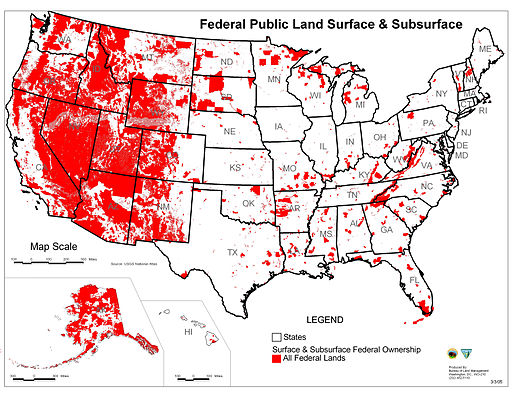
So what happened? As States were founded later and later in our nation’s history, our leaders departed further and further from the philosophy and mindset of the Founding Fathers. They began valuing individual freedom and self-determination less and embracing more instead the opposite of what their fore-bearers had believed. Individual citizens were no longer respected and esteemed as the rightful stewards of the land, but the land had to be saved from the citizenry to a large extent because the common man was seen as too selfish and small-minded to effectively manage his own affairs.
President Obama’s anti-American administration has only aggravated what was already a bad situation here. Obama’s environmentalist agenda hasn’t contented itself with waging an aggressive campaign against American oil, gas, and coal. Of course his skirmishes on those fronts have gotten the most attention in the public square for obvious reasons: the large, wealthy, multi-national corporations at the center of those industries spend a lot of money annually on lobbyists and political campaigns to raise awareness of their situation.
But farmers and ranchers like my dad are too busy trying to mind their own business and keep their heads above water. They have neither the time nor the resources to go making a big fuss about their struggles. And so they don’t, unless push comes to shove and one of them has no choice but to complain loudly or go under. And even then, when one among them does squawk at being pinched, the farmers and ranchers are divided, easily picked off one by one as each struggles to maintain his own affairs and avoid what could wind up being extra scrutiny from the government of a vindictive and punitive nature.
But it should come as no surprise to us that ranching and farming operations have also found themselves in Federal cross-hairs, as have the higher profile energy industries, especially under this president’s administration. Obama and the Progressives have made no secret of their belief that global warming is the greatest threat to America’s national security and the future of mankind. More to the point, the Progressives style themselves benevolent saviors of Earth from the would-be ravages of primitive, consumptive mankind.
Why wouldn’t they try to run ranchers and farmers off their land so the deer and antelope have more wildlife refuges in which to gallivant and play? Why wouldn’t such committed, ignorant, busy-body zealots sick the EPA, BLM, NPS, and USDA on farmers and ranchers, callously urging the implementation and enforcement of new and burdensome rules and regulations? Why wouldn’t they try to force some out of business, or take some to court, or throw some in prison? What are a few cowboys as collateral damage when the utopian visions of tree-huggers, vegans, and renewable energy czars are at stake?
Remember that President Obama campaigned in 2004 against a cowboy in George W. Bush. Then, upon winning the presidency, he proceeded to spend the next seven years of his inept leadership blaming that cowboy for leaving him a mess to clean up.
Obama and his elitist ilk don’t understand American farmers and ranchers, don’t sympathize with them, and they certainly don’t respect them. The Progressives look on American cowboys with disdain as everything that’s wrong with America, bitterly clinging to their God and guns. That’s why they’re plum tickled to drive such folks off the land to make room for more mountain lions, wolves, and bears.

This is yet another compelling argument in favor of a small and limited government.
The Federal government’s many programs, grants, regulations always sound great in principle, at least at first. But the proposal of and voting on them seldom to never seriously takes into account the corruptibility and fallibility of the men who will oversee and administer the benefits and penalties these programs utilize to achieve their purposes.
At least with someone corrupt in the private sector you can complain to the government that you’re being abused or defrauded. But who do you go to when your government is the one abusing and defrauding you?
And what prevents a government from withholding its gracious protection from those it decides are unworthy, or from extending its grip to choke them out if they complain?
What prevents a government from extending greater protection and support to those it has decided are more worthy of prospering, or from taking away from the weak and unconnected and giving to the rich and the manipulative anything they ask for?
Contrary to the governing philosophy of Progressives, it is not only the governed masses who are sinful, tempted by greed and malice, or prone to make mistakes and miscalculations then cover themselves by abusing others.
Those in favor of returning to the small and limited government of the United States Constitution understand that government itself is made of sinful and fallible men. As those sinful men operate with power that is less and less limited, possessing souls concerned less and less by the righteousness, omniscience, and omnipotence of a Holy God, what is to prevent them from taking whatever they please, especially in rural areas where ranchers and farmers are just trying to mind their own business, and will be too small, disparate, and spread out to affect any serious resistance?
We hold these truths to be self-evident, that all men are created equal, that they are endowed by their Creator with certain unalienable Rights, that among these are Life, Liberty and the pursuit of Happiness. — That to secure these rights, Governments are instituted among Men, deriving their just powers from the consent of the governed, — That whenever any Form of Government becomes destructive of these ends, it is the Right of the People to alter or to abolish it, and to institute new Government, laying its foundation on such principles and organizing its powers in such form, as to them shall seem most likely to effect their Safety and Happiness.
Those words were written 240 years ago, yet they still hold the power to stir something life-giving in a man’s soul. All men are created equal and endowed by their Creator – that means not only the bureaucrats and lawyers and lobbyists and legislators, but also the common men who are governed by them, whether justly or unjustly.
It seems to me a thing sacred and beautiful that honest, hard-working men living off the land by sowing and reaping should enjoy at least as much honor and deference in our society as those men who sit in offices and incessantly quibble about what old rules to throw out or reinterpret and what new laws and regulations to hoist upon the salt of the Earth.
Yet as a greater and greater portion of the American citizenry becomes increasingly dependent on bureaucrats and politicians and other men sitting behind desks and making up rules, and as a lesser and lesser portion is even remotely familiar with or sympathetic toward the life and work of farmers and ranchers, it becomes increasingly easy to marginalize and dismiss farmers and ranchers who complain of being strangled by an unreasonable and unrestrained government.
To whom do we give the benefit of a doubt when we hear of the Bundy family in Nevada or the Hammond family in Oregon? Do we take the government’s word for it when they tell us they are in the right as they pursue land grabs and intimidation of private American citizens and their families and seek to run them off their lands? If so – and if we are content to continue assuming the bureaucrats are in the right – it is we first, not the politicians who are responsible for America ceasing to pursue the vision of limited government, individual freedom and justice for all that was so gloriously laid out in our nation’s founding.
I cannot say for certain whether this or that specific farming and ranching family is justified in their every statement or action in contradiction of the United States government. All I can say is that I was once a little boy fishing and hiking on my dad’s farm, and that farm was lost and my family thrown into turmoil because of the actions of a dishonest and unscrupulous employee of the Federal government. No, the government does not get the benefit of the doubt in my book. The ranchers and farmers – struggling to maintain their way of life – do because I greatly admire them and sympathize with their plight.
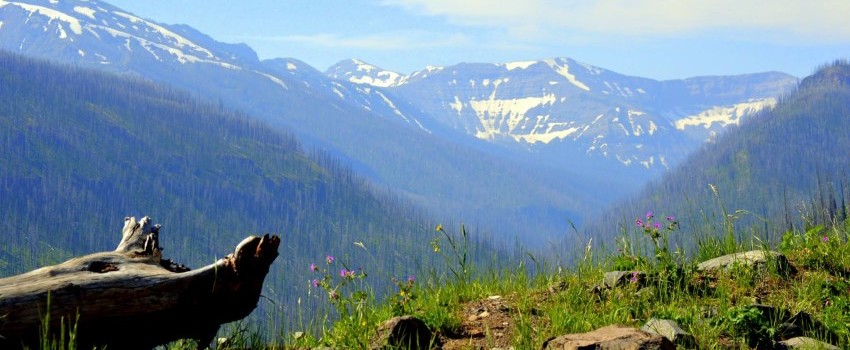
The Federal Government needs to give the American West back to America.
If the details of land management and Federal oversight of agriculture in the West seem too complicated to figure out in the cases for and against farmers and ranchers who tangle with the government, that should be our clue that this is yet another area in which the American system has grown excessively intrusive and overbearing.
When you include Bureau of Land Management (BLM), National Park Service (NPS), Forest Service, and Fish and Wildlife, the United States government owns 47% of all land in the West. That is simply ridiculous. The trend needs to be reversed rather than expanding further as politicians declare national monuments and wildlife refuges on and around land that has been ranched and farmed for generations.
The Federal government shouldn’t own so much land in the American West, and act like it owns everything and everyone that borders its lands. According to the Department of the Interior, out of the 2.27 billion acres that make up the United States of America, about 28% is owned by the Federal government. By State the portion can range anywhere from 0.3% (as in the cases of Connecticut and Iowa) to 28.9% (as in Montana) to 81.1% (as in Nevada).
Rather than giving in to President Obama and the Progressives seeking through their unelected bureaucracies to criminalize private management of land and water, we as Americans should campaign for the government to begin auctioning off the vast majority of the land it currently holds claim to. Get the government out of the land management business entirely.
For one, this would greatly increase the liberty and individual autonomy of all Americans, and it would get the government off the backs of farmers and ranchers who have enough to worry about without the government constantly meddling in their affairs.
For another, the funds raised in selling these lands back to the American people, and the tax dollars saved in closing down bloated and counter-productive bureaucracies like the BLM and NPS could be channeled into paying down the national debt – currently at $19 trillion, if you haven’t been paying attention.
Can you imagine what might happen if private citizens were allowed to buy up these lands and use them to build homes and ranches and farms and raise their families? Wouldn’t that be glorious?
Don’t object on the grounds that Yellowstone and Yosemite and the Grand Canyon are beautiful places to vacation. You could still have large parks and refuges to visit with your family if you didn’t want to buy land in and around them. But let the private philanthropists and environmentalist groups buy and manage the parks that will be had, and do so as they see fit – for tourism or education or whatever – so long as they’re not hurting anyone. Let the environmentalists mind their own business worrying about such things, and stop subjecting the rest of us to their fanatical hippie, tree-hugging, repressive save the planet madness.
If that notion strikes you as odd, that just further proves how far America has departed philosophically from the mindset of the Founding Fathers. Rather than seeing everything not explicitly reserved to the People as belonging to the Government, the first generations of Americans who fought the British for independence saw everything not explicitly given to the Government as rightfully belonging to the People.
I say its high time we return to the mindset of the Founders and stop allowing the Federal government to continue expanding its authority over the tiniest details of our daily lives in America, whether we be farmers and ranchers or city-folk.
This Hits Too Close to Home
My long-term, pie in the sky life’s dream is to own a ranch myself someday – a bison ranch, to be exact. When I close my eyes, I picture acres of rolling pastures with a pond or stream for my children to fish and catch frogs in. Over here is a barn for dairy goats and a chicken coop for farm-fresh eggs, and over there a greenhouse for year-round gardening of organic vegetables and herbs to feed my growing family.
Because my dream is to someday own a ranch of my own and live off the land, it just burns me up to imagine working my whole life to save the money and build something like that – something good and pure I can share with my children and grandchildren and pass on to them when I die – only to have a corrupt government official on a long leash and a power trip take it all away from me through deceit, trickery, and intimidation.
The vision of America’s Founding Fathers was that individual citizens would have their right to self-determination protected, especially where individuals minding their own business weren’t hurting anyone. How better to protect those rights in our day and age than by petitioning our Federal government to stop interfering with the independent exercise of free choice which landowners live out on ranches and farms all over America?
